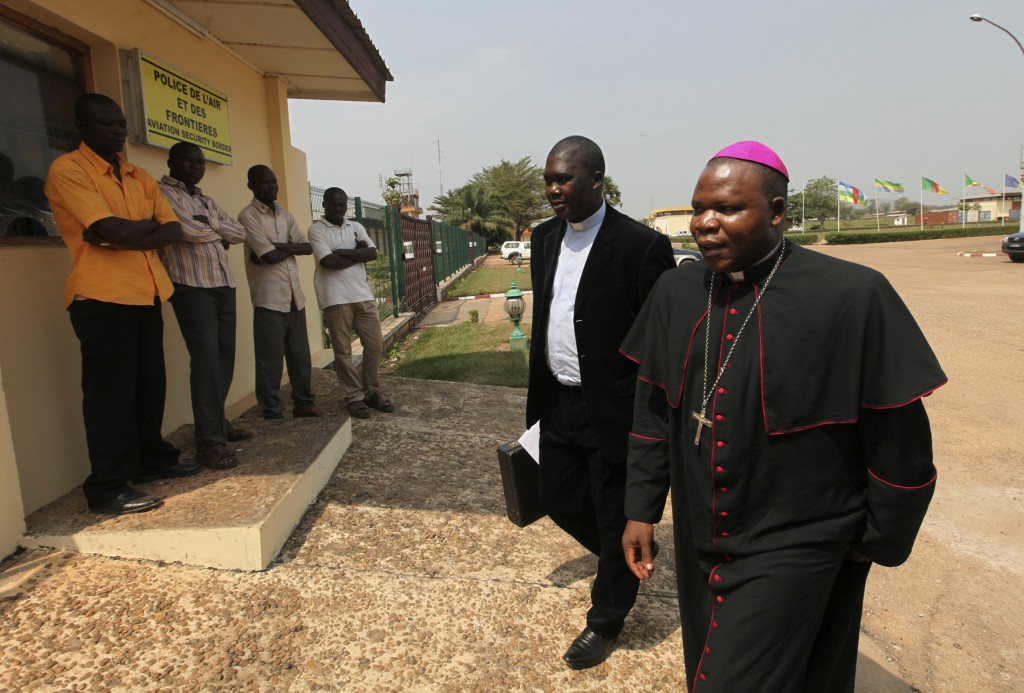
One of the country’s leading Catholics helped mediate between the Seleka rebel alliance and government leaders, resulting in a peace agreement to end fighting that left a Catholic journalist dead.
Father Dieu-Beni Mbanga, chancellor of the Archdiocese of Bangui, confirmed that Archbishop Dieudonne Nzapalainga represented civil society and helped mediate at the talks in Libreville, Gabon. The two sides announced a peace agreement and plans for a unity government Jan. 11.
The rebel alliance, which had hoped to overthrow the government of President Francois Bozize, began its drive in the North Dec. 10 and captured about a dozen towns.
During the occupation of the city of Bambari, rebels looted a diocesan-run radio station and killed journalist Elisabeth Blanche Ologio.
Renee Lambert, head of the Catholic Relief Services program in Central African Republic, said the agency’s staffers remained safe, but CRS programs in the country’s southeast were delayed. For instance, she told Catholic News Service in early January, the U.N. Humanitarian Air Service temporarily suspended its flights in the country, so agencies were not as easily able to travel or assess the impact of the fighting.
“One important thing to note is that, while we’re still gathering information on the extent of the humanitarian impact of this current situation, the humanitarian situation before this crisis had already been classified as a forgotten emergency,” she said. “Poverty levels are some of the highest in Africa. Health statistics, when they exist, are alarming. And there is little to no road infrastructure to develop market access.
“The need for humanitarian assistance in CAR was and still is extremely high,” she said, adding that it was “disheartening that it takes a situation like the current one to bring CAR to the world’s attention.”
The 2011 U.H. Human Development Index — the latest ranking available — ranked Central African Republic 179th of 187 countries. The index looks at health, education and living standards. – CNS